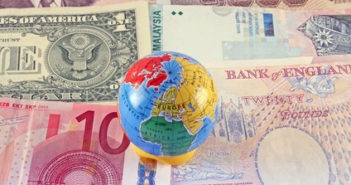Are the world’s political leaders up to the job? In tumultuous times the leaders of major nations face an unenviable task in tackling some of the biggest challenges faced in modern times.
Forex market experts DailyFX has put US President Donald Trump, UK Prime Minister Theresa May, Japanese Prime Minister Shinzo Abe, Canadian Prime Minister Justin Trudeau, Australian Prime Minister Malcolm Turnbull and the President of the European Commission Jean-Claude Juncker under the microscope for a new research project.
Taking 59 key dates – between April 2017 and April 2018 – for the six leaders, it shows what happened to their respective currencies when they say or do something significant. It appears to show that some huge news stories had an immediate currency impact and others had little effect.
Here’s a high and low for each of the leaders as shown by their interactive guide:
Theresa May
The Prime Minister had a lot on her plate in 2017/18 – dealing with the fallout from a terror attack and the Grenfell Tower fire as well as a snap election, maintaining the ‘Special Relationship’ in the era of Trump and, of course, Brexit.
High
November 29 – Strong performance for the Pound after May rebuked Donald Trump for sharing posts from a far-right group in Britain.
Low
June 9 – The Pound falls after May’s snap election backfired and she lost her Parliamentary majority.
Donald Trump
Is there a day when Donald Trump is out of the headlines? From firing James Comey and Steve Bannon to picking a fight with Kim Jong-un, sparking a trade war, denying a relationship with an adult film star and fighting allegations of Russian election interference, the 45th US President has never been far from the top of the news agenda.
High
January 2 – The Dollar rises against the Pound, Canadian Dollar, Yen and Euro following tough talking to Kim Jong-un when he warned the North Korean leader that he had a bigger ‘nuclear button’.
Low
March 22 – The Dollar falls – especially against the Euro – after Trump announced tariffs on $60 billion of Chinese imports, prompting fears of a full-blown trade war.
Jean Claude-Juncker
The President of the European Commission has been dealing with an agenda that has included the prospect of a US trade war, an EU budget deficit and the Brexit negotiations with the UK.
High
March 3 – Strong performance for the Euro after Juncker vows to stand up to Donald Trump and hits out at the ‘stupid process’ of tariffs.
Low
January 8 – Falls against the Yen and US Dollar after Juncker called on EU member states to make up the budget shortfall that will be left when the UK exits.
Malcolm Turnbull
From a bizarre ball-tampering row engulfing the nation’s previously-beloved cricket team to a sex scandal for his ministers, managing a trade war, new Visa rules and conflict with North Korea, the Australian Prime Minister’s 2017/18 has been varied, to say the least.
High
March 10 – Growth for the Australian Dollar as Turnbull secures a deal from Donald Trump to exempt Australia from steel and aluminum tariffs.
Low
November 3 – Turnbull decries a ‘witch hunt’ after a saga in which six politicians lost their jobs as a result of being found to be dual citizens.
Justin Trudeau
If you think Trump is an unpredictable person to deal with, try being his neighbor. The Canadian Prime Minister has had to try to manage relations with Trump on top of domestic criticism that has dented his popularity.
High
March 8 – Growth for the Canadian Dollar as Trudeau earns an exemption from tariffs in a call to Donald Trump.
Low
February 7 – Trudeau suggested that Canada might be better off taking ‘no deal’ on a new North American Free Trade Agreement pact than accepting a bad deal, with the US pushing for changes.
Shinzo Abe
Like his counterpart in the UK, the Japanese Prime Minister announced a snap election in 2017/18, albeit with a different end result. Shinzo Abe also had to fight political scandals and manage relations with Donald Trump and Kim Jong-un too, with Japan not immune to the fractious geopolitical environment.
High
October 22 – Abe retained his two-thirds majorities in both houses of parliament after a snap election to secure his position as Prime Minister. The result was an endorsement of ‘Abenomics’ and saw strong growth for the Yen.
Low
June 19 – The Yen fell as Abe admitted his government had ‘invited mistrust’ following high profile political scandals.
Clearly, the markets don’t just hang on every word of politicians. A huge variety of factors – from economic data to natural disasters and consumer taste – all impact on the confidence in a currency and, as a result, its price. However, currency charts do at least give us one measure of the immediate impact of events that appear significant in a political sense.
Get the 5 most predictable currency pairs
What forex shows about the highs and lows of 2017/18
